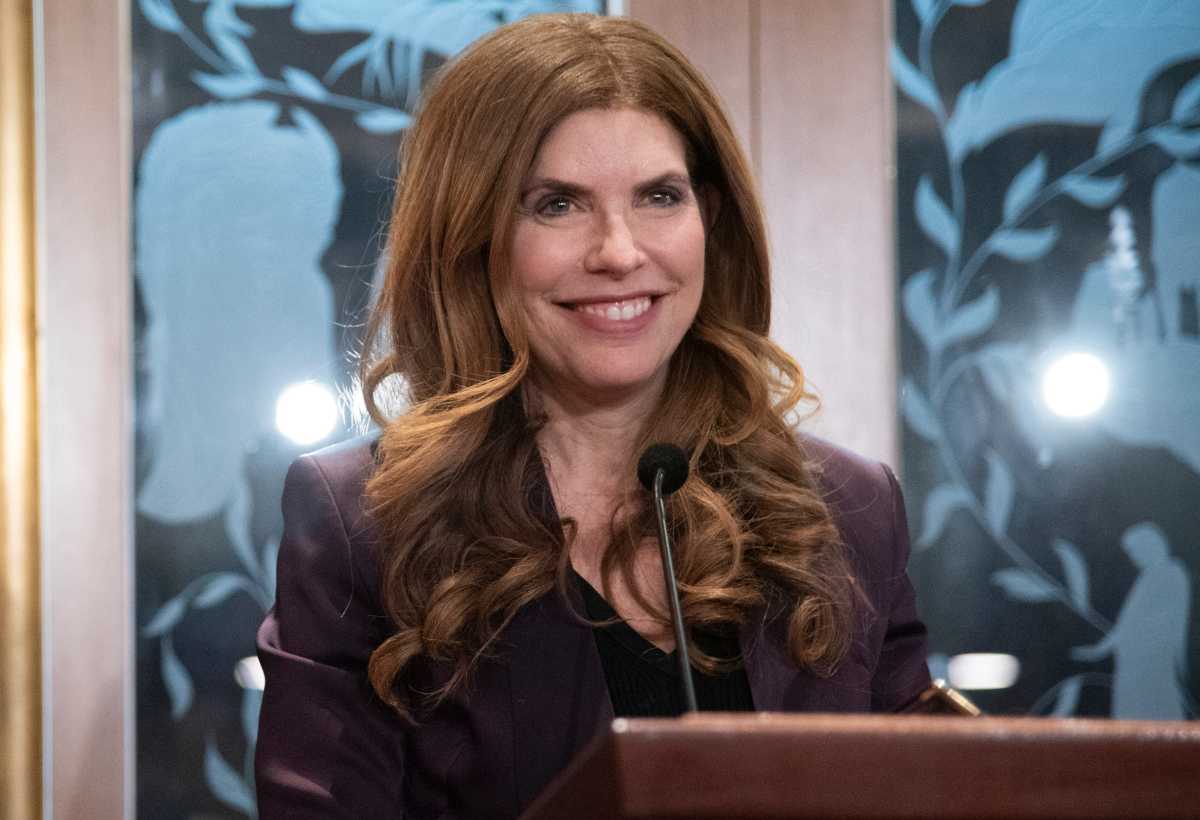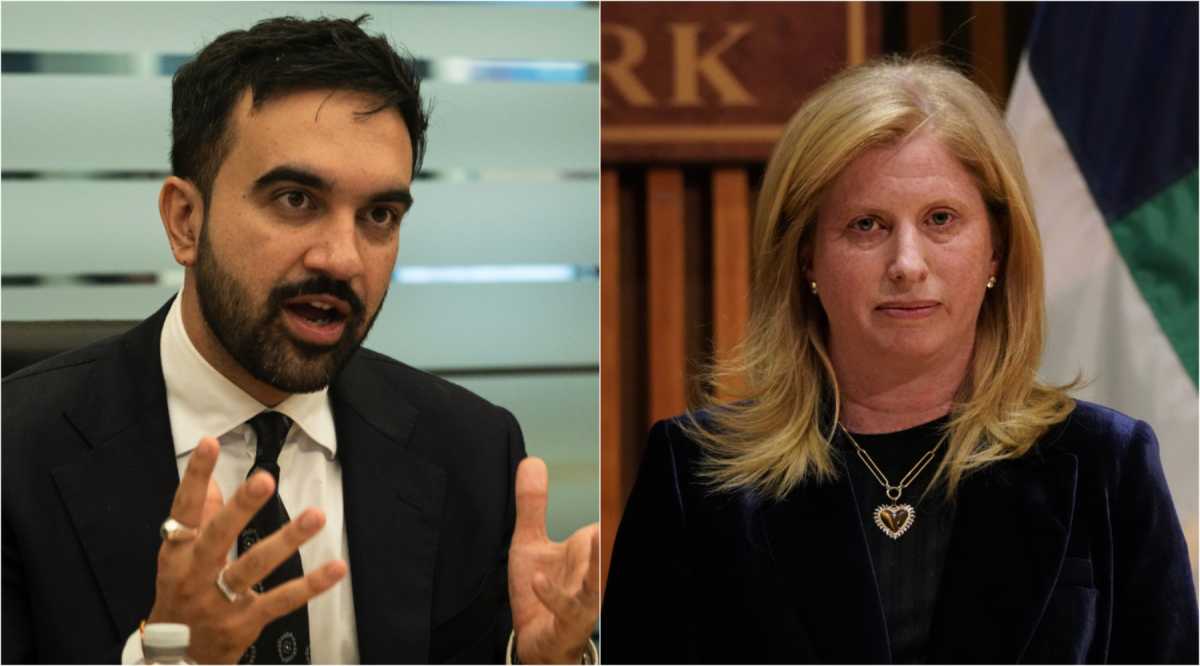Brooklyn City Council members Brad Lander, Vincent Gentile, Robert Cornegy and Mathieu Eugene joined other elected officials, labor leaders, street safety advocates, and school community representatives on the steps of City Hall, yesterday, to call on Mayor de Blasio to allocate more resources for hiring more school crossing guards and to improve the job quality to keep those positions filled.
Rally participants asked for an additional 236 positions to be made available in Fiscal Year 2016, a 10 percent increase from the current number of school crossing guards, which would cost an estimated $3.3 million. De Blasio’s preliminary budget did not allocate any additional funds for school crossing guards.

“Our goal is simple: to make sure that every dangerous intersection that needs a school crossing guard, gets a school crossing guard,” said Lander. “But right now, we can’t even fill the positions we have. Our crossing guards perform the priceless task of keeping our kids safe as they travel to and from school – so it’s outrageous that we’ve been paying them low wages, keeping them stuck in part-time jobs, and laying them off in the summer. By making job-quality better, we can fill vacant slots. By expanding the number of slots, we can move toward NYC’s Vision Zero goals to eliminate preventable deaths from traffic crashes, ensure a safe Pre-K expansion, and do more to keep all our kids safe.”
Rally participants outlined a five-part plan for job quality improvement. The first step would be to provide year-round health care and end seasonal furloughs during the summer months. The New York Police Departments’s Deputy Commissioner of Management and Budget indicate that the annual benefits package costs $14,000. Therefore, the cost of providing an additional two months of benefits during the summer months should be approximately $2,333 per guard.

“Our crossing guards deserve a living wage that reflects the work that they do. Our crossing guards don’t deserve to be furloughed for two months, having to pay for their own insurance. It’s time to give our crossing guards a living wage, year-round health care and career that will take care of them,” said Council Member Vincent Gentile.
Secondly, they propose raising the hour cap for school crossing guards. Currently, their contracts cap their hours at 25 hours per week, with most guards only being paid for 20 hours. The low wages make the positions undesirable and harder to fill. Hundreds of positions turn over each year. Between their morning and afternoon duties, the guards could provide other services, such as filling in for school safety agents and monitor other dangerous intersections.
The third proposal is for a more stringent process of identifying these dangerous intersections. It is recommended that a process based on data and community advisement be put in place to determine which intersections need a guard, which intersections have already been assigned a guard, and which intersections currently have a guard stationed there at any given time.

“It is imperative that we develop a more viable process to determine where school crossing guards are needed to ensure that dangerous intersections are sufficiently covered,” said Eugene.
A new method of recruitment is also being suggested. Currently, individuals apply in person at a particular precinct, making it more difficult to identify and vet candidates. The rally participants recommend a recruitment drive, similar to the method used to hire lifeguards.
Lastly, the five-part plan calls for a revamping of the systems in place for training, retention, and promotion, which vary from precinct to precinct. Updates to this system would ensure crossing guards’ skills are being utilized as effectively as possible.
Referencing two recent fatal accidents involving children, Henry Garrido, Executive Director of DC37, said, “Additional hours for school crossing guards may help reduce those tragic incidents by providing more coverage at crosswalks. Drivers who see a crossing guard know that children are nearby and should slow down.”
De Blasio spokesperson Wiley Norvell said protecting students as they travel to and from school is a top priority of the administration, but stopped short of saying the administration would hire more crossing guards or give them better benefits.
“We are undertaking a range of strategies including deploying crossing guards and implementing slow-speed zones around schools to ensure our kids are safe. In addition, the City now pays a Living Wage to all personnel, crossing guards included,” Norvell said.








